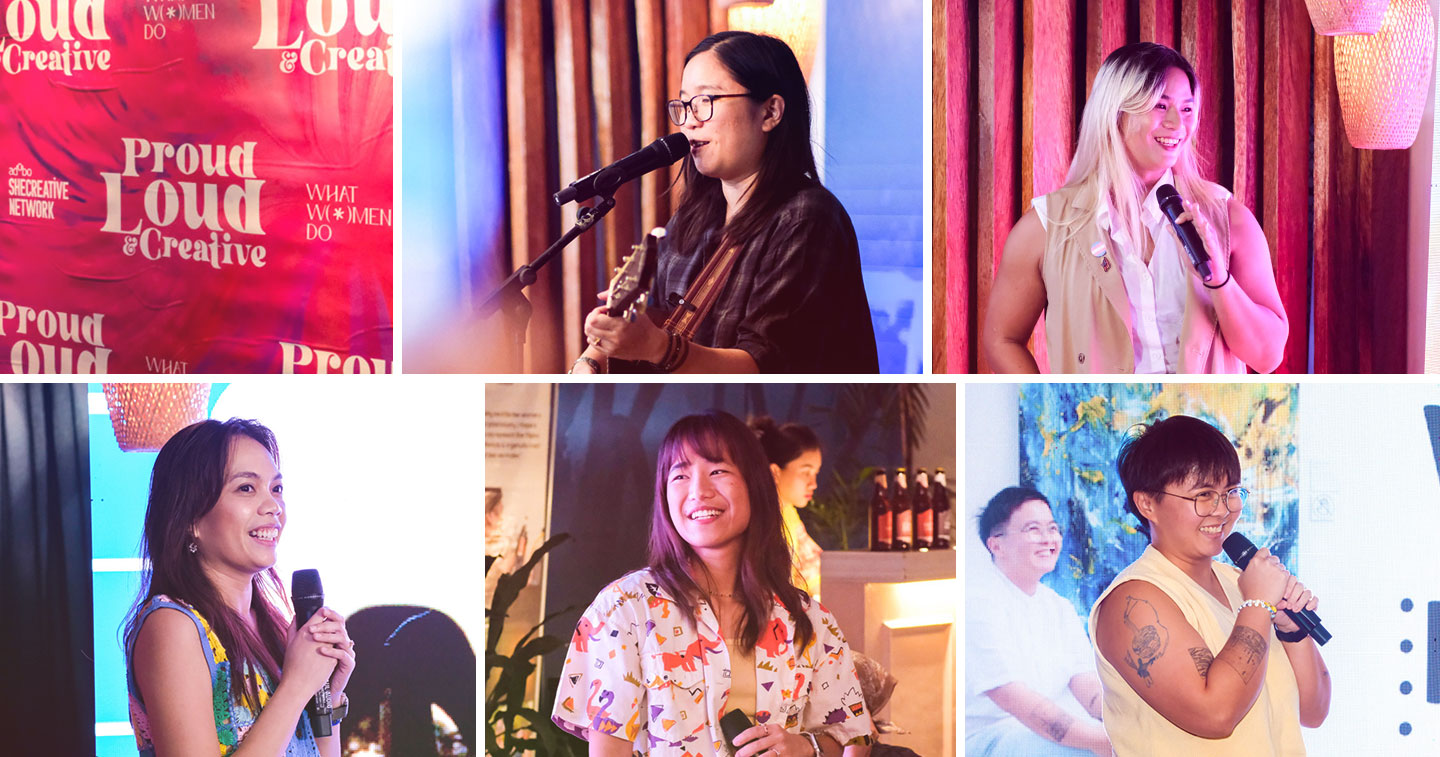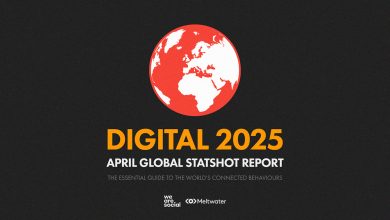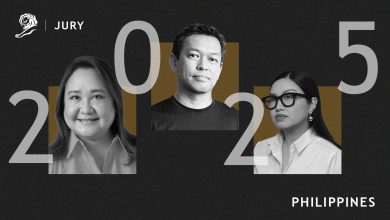MANILA, PHILIPPINES — If there was one thing we learned from all the luminous queer creatives who graced the stage at adobo SheCreative: Proud, Loud, and Creative!, it was that the most important thing LGBTQIA+ women can do is to show up, stand up, and be seen. From singer-songwriter Nica Del Rosario, to director Samantha Lee, to musicians Pat Lasaten and Agnes Reoma of Ben&Ben, every single speaker shared the same message from their stories: “Simply being visible as a queer woman brings value.”
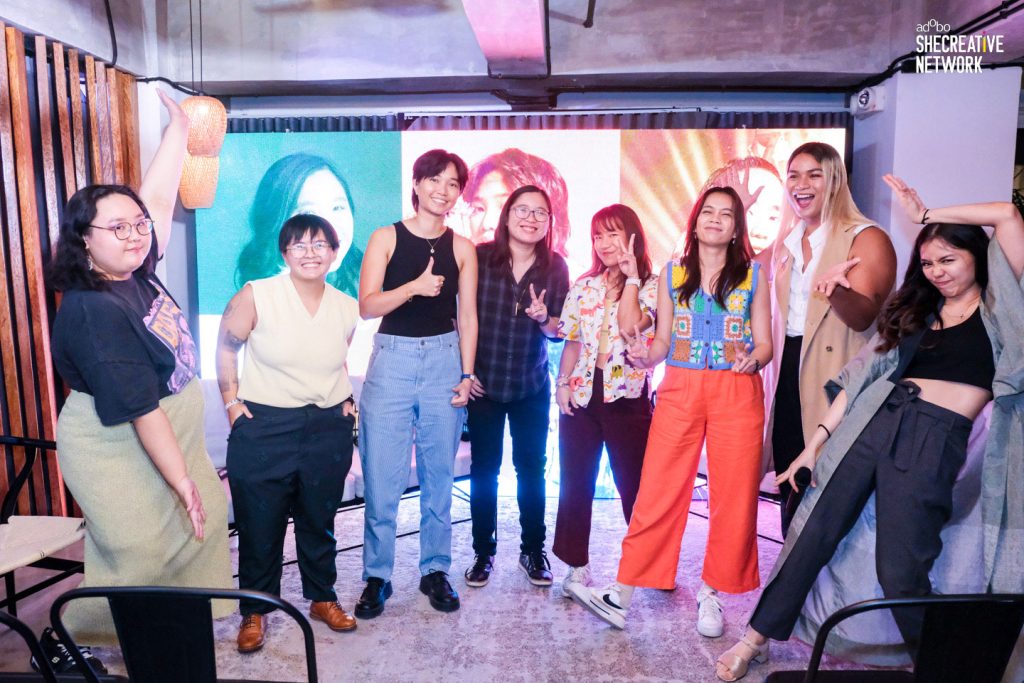
The event, held last June 20 at The Astbury in Poblacion, Makati City, brought together some of the most inspiring young queer women in creative fields. Along with Nica, Samantha, Pat, and Agnes, visual artist Carla Norberta and Founder and CEO of Overdrive Studios Dani Rogacion talked about their unique journeys through their respective fields before they all arrived at the same destination: being their authentic selves, thriving, and inspiring other young creatives of all SOGIESCs.


Actor and host Justine Peña welcomed everyone to the event with her vivacious energy before giving the stage to adobo Magazine Senior Content Manager (and adobo SheCreative’s resident mother) Nala Ortiz, who set the tone with her rousing welcome remarks.


“Alam naman nating lahat na this month is very important for the LGBTQIA+ community. Amid the numerous celebrations this Pride Month (which is very, very well deserved), let us not forget what it truly commemorates: the years of struggle for our rights, the continued pursuit of SOGIE equality and acceptance, and honoring and preserving the colorful and creative queer culture,” Nala said.
“Mahalaga ang kababaihan — regardless of your background, that statement will always ring true,” she continued. “Here at adobo SheCreative, we continue to forge more ways to celebrate the power and innate talents of women, as well as their ability to create a positive impact on culture, creative industries, business, and communities — providing a platform for women to connect, educate, and support each other in their endeavors and achievements.”
Nica followed this up with the story of how she grew from being an intern at a small record label to becoming the head writer of FlipMusic, and writing some of the country’s best pop songs along the way. One of those song, ”Tala” by Sarah Geronimo, was written, surprisingly, in less than two hours.


“I wish it was this big, glamorous, dramatic story of how I wrote ‘Tala,’ but it’s really just a story of how I had a deadline […] and I really liked outer space, so I wrote it in about an hour or so,” she shared. “I guess what I’m trying to say is writing is a muscle — that’s what I learned before — it’s not just about being inspired. It takes a lot of discipline and some hard work. The reason why I got to the point where I can write it in an hour and just go through these usual things is I spent many, many years trying to work through it and work on being a songwriter.”
The fact that she’s one of very few, very visible queer songwriters in the Philippines isn’t lost on Nica, either, and her hope is that being this visible helps normalize queerness in mainstream culture.
“It’s a nice feeling that people think I write specifically for sapphic people, and people see me as a sapphic songwriter. But sometimes, I feel like maybe someday, when we have more basic rights, we can get married and do stuff like that, wala nang differentiation,” she said. “Maybe me and Pat and Agnes, we don’t get identified as ‘queer musicians’ anymore; we could just be musicians, and we could tell stories that are universal that are universal to everyone, and it doesn’t have to be queer stories or sapphic stories.”
Samantha underscored the importance of representation in her own talk and how the lack of positive queer female representation in her childhood had a significant impact on her.
“Representation matters and this is something I’m very passionate about because growing up, I never saw a representation of myself or the self I wanted to be in local media,” she said. “When I was growing up, ang mga bakla ay laging pinagtatawanan, pinagiiwanan, or worse, nasasaktan. This lack reinforced my belief that I wasn’t actually gay, that maybe there was something wrong with me, that I should just conform to society’s notions of what a girl or a woman should be.”
“In a country where mass media has the power to shape mass consciousness, the images that people see onscreen can influence the perception of what is real, what is acceptable, and what is right. Individuals seeing strong, empowered women and queer people that they can relate to onscreen can have such a profound impact on their being,” she explained.
By bringing more authentically queer stories to our screens, Samantha hopes that more queer people are encouraged to likewise live their lives as authentically as possible.
“Historically, queer people have always been relegated to the shadows; we love in the dark. By having characters in films that no longer have to love in the dark, perhaps queer people in real life can also feel inspired to express love openly, and try as well.”
For Carla, being visible isn’t just about inspiration; it’s also about creating more safe spaces for queer women. “I really love saying that I’m a queer visual artist, even if my works aren’t always inherently queer,” she shared. “It’s because, like in the way that I introduce myself as neurodivergent, I wanted to make queer people know na it’s safe with me. Safe kayo sa akin. Pare-pareho tayo dito.”


“It’s scary to be a queer person, and you don’t know if the people who are creating out there will be willing to create for you, so that’s why I always make it a declaration that I am a queer artist,” she added.
At the end of her talk, Carla called back to Nica’s vision of having queer art being so normalized that the “queer” label is altogether dropped. Flashing a Powerpuff Girl-inspired rendition of her authentic self, she explained: “That’s why I just keep posting the queer stuff and all that, because we want, one day, it’s just art as well. It’s the same as any other drawing. It is a privilege and a responsibility for us queer creatives to create a world where all the gaybies will have their own Powerpuff girl that looks like them.”
After a brief intermission, Dani shared her story about navigating the world of esports as a trans woman and how embracing her identity helped her become a more fully realized creative.


“The best thing I’ve learned so far is you get to do your best work when you’re true to yourself,” she said. “Medyo cliche siya, pero the moment that I stopped caring what other people think, I stopped attaching myself to their opinions. I stopped seeking their validation as well. […] And that’s when my work actually stood out.”
Dani’s position at Overdrive Studios makes it very hard for her to not be visible — among the different local and global clients her design studio works with include Sibol, the Philippines’ national esports team at the SEA Games; FSL, one of Southeast Asia’s leading womens’ gaming circuits; and Dubai-based esports organizer Calyx. And it’s this visibility that she uses to further her advocacy of creating a level playing field for gamers of all SOGIESCs.
“With a very even playing field — and this is what we’ve been trying to do for a very, very long time now— everybody can play,” she said. “That is the goal we want to have moving forward as an industry. No matter who you are, where you came from or your gender identity, everybody should be able to play.”
“It’s not enough to just exist in this space, especially when you’re someone who’s trans and who’s very queer. Do not be afraid to take up space in things you’re passionate about.”
For the last talk of the afternoon, Pat and Agnes teamed up for a very lively presentation of how they joined Ben&Ben, came out to the world via the music video for “Paninindigan Kita,” and why it’s impacted them both in their personal lives and their convictions.
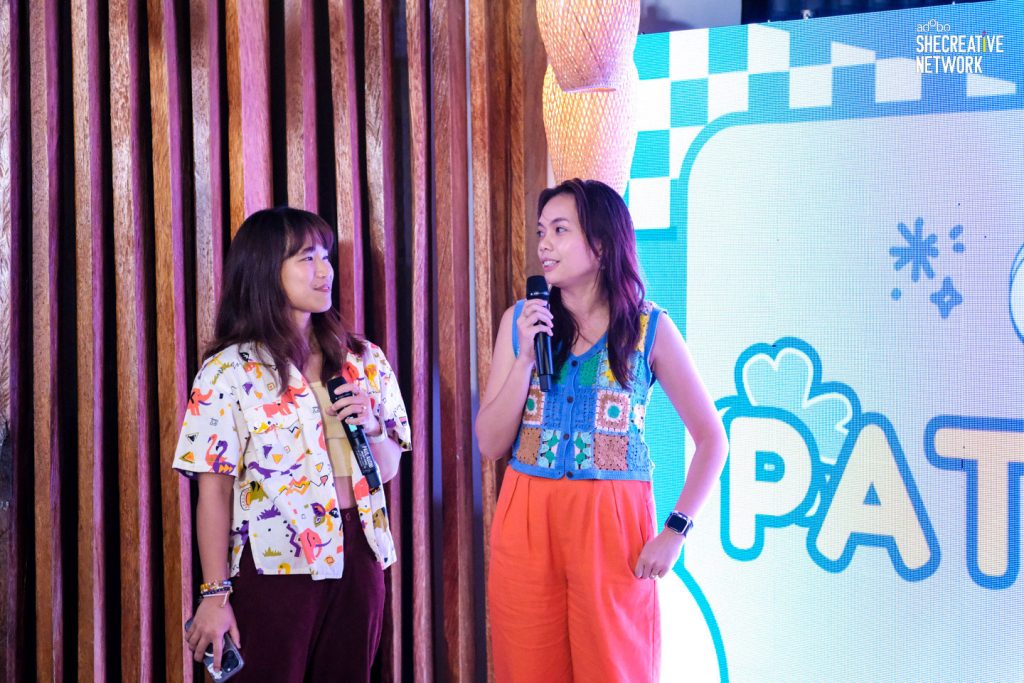
“When you are yourself, kung may aalis man, I think meant to be na sila umalis,” Agnes said. “And yung mga magre-remain ay yung totoong people na maghe-help sa ‘yo na mag-grow. It’s so freeing pag lahat ng mga taong kilala mo, yung mga tao na sa paligid mo accepts you fully and knows na lahat kayo nagtutulungan para mag-grow yung isa’t-isa.”
Pat talked about how this, in turn, has helped strengthen their shared vision for having more visibility for women — and especially queen women — in the music industry, both on and offstage: “Let’s face it: the music industry is still heavily male-dominated, even sa mga banda. Kahit nga sa ibang bansa; we did a show in Malaysia a few months ago, tapos maliban sa aming magkakabanda and then this other girl group, wala na ibang mga women na instrumentalist.”



That lack of visibility, she explained, can lead to kids missing out on what might be successful music careers simply because they didn’t see anyone like them thriving in the industry. A lack of visibility means a lack of role models, which leads to kids giving up on music before they’ve even started.
“We just want to show these kids that this is a career option, like ‘I can be an instrumentalist, I can be a bassist, I can be drummer, I can be whatever I wanna be!’” Pat said.
“When Pat and I were trying to remember, growing up, I can only name two bands na may nakita akong [babae]— both are bassists na nga eh — Sandwich and Urbandub na nagbe-bass,” Agnes added. “For the band scene, what’s that? Two out of how many? One hundred? And iba pang usapan yung off-stage, like all these people — crew, directors, lights, everybody there. We want it to be more visible lang din to more girls na pwede siyang maging career option, na pwede din pala yung babaeng tumugtog.”
Guests were then treated to a second intermission, where Nica played her own rendition of “Tala,” as well as “Rosas,” the ballad she wrote in support of Leni Robredo’s 2022 presidential campaign.



The event closed with a lively group panel discussion moderated by Justine, who asked each speaker questions the adobo SheCreative audience sent in. The last question, asked to the entire panel, was about how people can be better allies to queer women. Carla spoke on the willingness to grow and listen from the LGBTQIA+ community, while Dani advised going all-in on the support instead of being selective with it.
Samantha added that cisgender and heterosexual people need to be mindful of the privileges they enjoy that queer people systemically don’t, and to speak out against this inequality. Agnes gave a reminder for brands that real allyship is year-round, rather than just for Pride Month. In fact, the entire panel — Justine included — joked about how it’s actually easier to book queer creatives outside of June because their schedules are much more open.


Listening to all these proudly queer women show up, stand up, and be seen made for a truly inspiring adobo SheCreative session, one that is much appreciated at a time when the glut of Pride-related events can sometimes lead to a dilution of what this month truly stands for. As Nala said at the very start of the afternoon, mahalaga ang kababaihan—and in the continued struggle for LGBTQIA+ rights, this is even truer for queer women.
adobo SheCreative: Proud, Loud, and Creative was made possible thanks to the following partners:
Gold Partner: Insular Life
Bronze Partner: Prestige Paper Products
Venue Partner: The Astbury
Swag Partners: Ellana Mineral Cosmetics, ZALORA, Parlon, Monkey Eagle Brewery
Food and Beverage Partners: Angel’s Pizza, Moonleaf Tea Shop, Lunar Coffee, Jade’s Temple Brewery
Organization Partners: ASEAN SOGIE Caucus, Digital Marketing Association of the Philippines (DMAP), RMN Networks, Asia Society Philippines, PANA, Queer Safe Spaces

